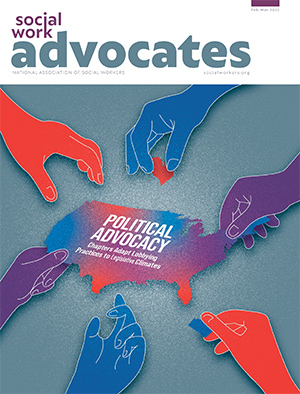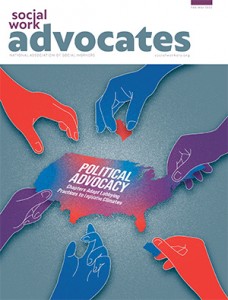By Dinah Wisenberg Brin
The obstacles and stresses that children with developmental disabilities and their families face can become overwhelming. The need to navigate a complex services landscape, get help from school officials, deal with social isolation and manage financial strains, among other challenges, often create daunting pressure for parents seeking the right support for children who learn or think differently.
“It’s really hard when you’re neurodiverse to live in a neurotypical world that isn’t set up for you, when people don’t understand your needs and there’s a constant need to advocate for yourself,” said Karen Zilberstein, a psychotherapist, author and NASW member based in Northampton, Mass.
“Sometimes the stress of coordinating with the systems and the responses they’re getting from the systems is what puts families over the edge,” she said. “The stresses can cascade and mount.
I know families where it’s affecting their mental and physical health.” The strains sometimes cause caregivers to lose sleep, she said, noting that studies have found higher rates of anxiety and depression among parents of special needs children.
While there may be no one, simple solution for the problems that neurodiverse youths and their families experience, social workers can play an important role in advocating for them and easing their difficulties—individually and as a profession. NASW has made it a priority to champion people with disabilities, including in its book of public policy statements, “Social Work Speaks,” that the organization “supports and is willing to take action with people who have disabilities in advocating for their rights to participate fully and equitably in society.”
Before exploring how social workers can help neurodiverse children and their families, it’s important to understand their unique struggles. Neither the problems nor the solutions come in one size for all, as these clients face their own specific circumstances and each state provides different resources and systems for obtaining support.
NASW members can read the full story here after logging in.





